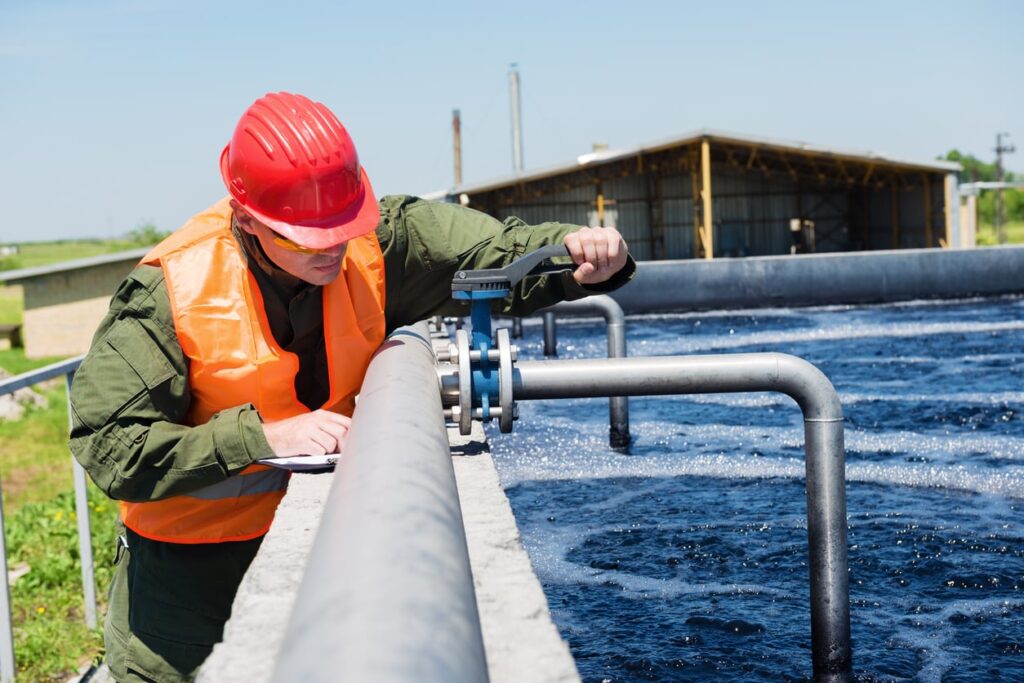Associate of Applied Science│Online Degree│ 2 Years│63 Credits│Eligible for Financial Aid
WI Median Salary for Recent Graduates: $55,585
Associate of Applied Science│Online Degree│ 2 Years│63 Credits│Eligible for Financial Aid
WI Median Salary for Recent Graduates: $55,585
Water quality issues are continuing to increase in the country—and so are career opportunities in the water technology industry. Moraine Park’s Water Quality Technology program prepares students for a rewarding technical career through hands-on training and industry expertise.
Each day, municipalities and industries generate billions of gallons of wastewater that must be collected, analyzed and treated. Through targeted instruction and an on-the-job internship, students learn how to test, analyze and improve operational procedures at water treatment facilities. Students unable to secure an internship will have opportunities to do a research project.
Water Quality technicians are responsible for ensuring that the water we use is safe and that discharge water is processed effectively. Their work combines the precision and accuracy found in the biochemical laboratory with operational aptitude and troubleshooting skills.

MPTC’s Program graduates also have employment opportunities as environmental technicians and field service technicians at companies that design and install water treatment equipment for municipalities and manufacturing companies.
Water Quality Technology students learn to:
Moraine Park’s Water Quality Technology program provides students with the skills and training to perform testing, analysis and treatment to community and industrial water supplies. Career opportunities include, but are not limited to, the following:
Statewide Median Salary for Recent Graduates: $55,585
There are also positions available at breweries as they treat their water and wastewater, at large dairies where they process the milk, food handling companies such as packaging plants, and harvesting companies that process the food like Heinz or pickle producers.
Some other areas include bean harvesters and canners, cheese factories, paper mills, and engineering firms as Operations Specialists, where the O&M Specialist helps with some design, writes documents for operators, trains people in processes, and will perform process startup services once built.
Some have found work in laboratories, aquariums, pond or lake maintenance and water parks.
Graduates are strongly encouraged to pursue obtaining a Commercial Driver’s License (CDL).

Moraine Park’s admissions starts with the online application. The admissions steps and financial aid process can take 4-5 weeks for some programs, so plan ahead.
View and begin standard admissions steps.
If you have any questions or need help with the process, please contact us at admissions@morainepark.edu OR 920-924-3200, TTY/VP:Use Relay VRS.
Estimated costs below are based on the 2023-2024 school year. These fees look at the cost to complete all classes. Costs, textbooks and supplies subject to change. For more details, see Cost of Attendance.
Current tuition and fees
Textbooks*
*Based on new books, rental, electronic, and used options may be available.
The cost of your degree depends on a number of factors such as total credits required, textbooks and the financial aid you receive. Some programs have additional costs such as uniforms, technology and equipment.
Please refer to the Tuition & Fee Information for enrollment fee information.
Cost of attendance (sometimes referred to as the “sticker price”) is the maximum amount of money it costs to attend college for one year and is used to determine your financial aid offering.
While attending Moraine Park during the 2024-25 school year, your estimated cost of attendance for one full year includes tuition of $4,462 (15 credits for fall and spring semester), fees of $338, food and housing of $3,008 (if living with parents, $9,147 if living on your own), books and supplies of $1,465, personal expenses of $3,608, and transportation of $4,017 for a total of $17,002. Your direct costs (those costs paid directly to the college) include tuition & fees. The indirect costs (costs not paid to the college) can vary from individual to individual and your own personal needs.
